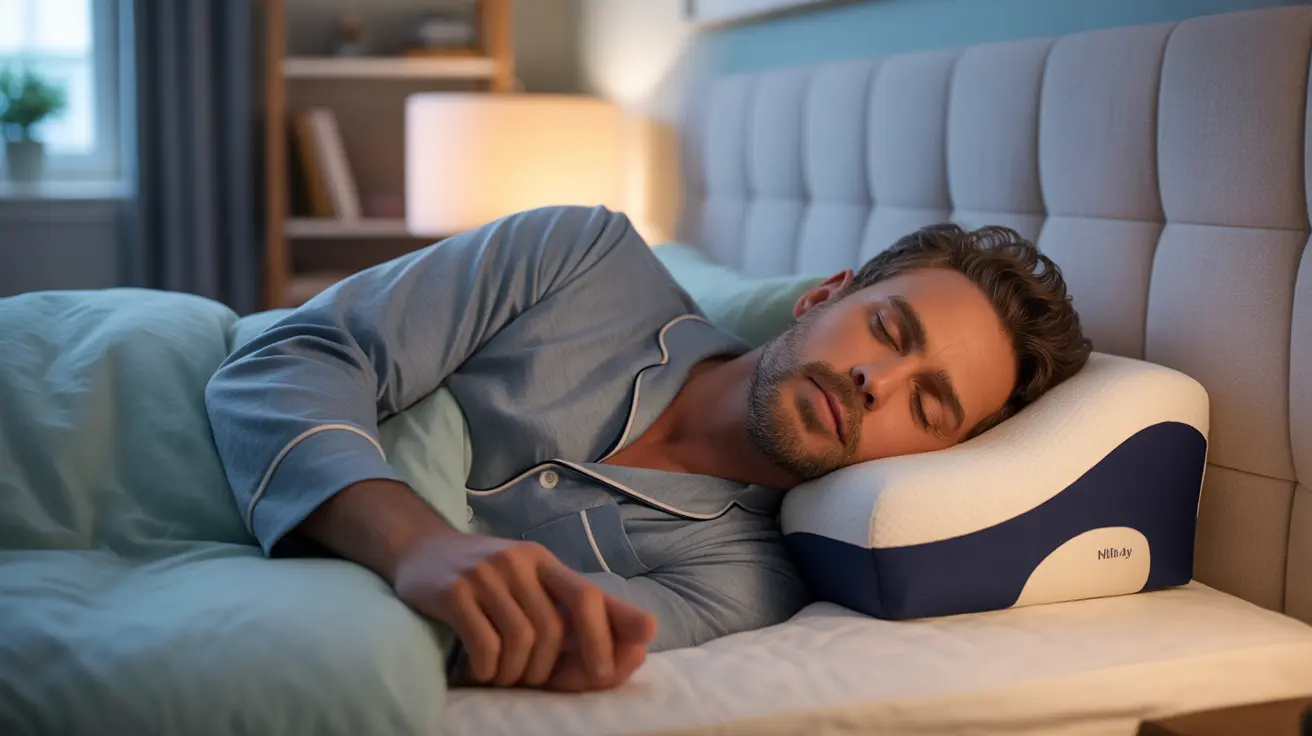Living with sleep apnea can be challenging, but various home remedies and lifestyle modifications can help manage symptoms and improve sleep quality. While medical treatments like CPAP machines are often necessary for severe cases, incorporating natural remedies alongside prescribed treatments can enhance overall treatment effectiveness.
This comprehensive guide explores evidence-based home remedies for sleep apnea, from positional therapy to lifestyle changes that can make a significant difference in your sleep quality and overall health.
Sleep Position Modifications for Better Breathing
The way you sleep can significantly impact sleep apnea symptoms. Side sleeping is often recommended as it helps keep your airways more open compared to sleeping on your back. Some effective positioning strategies include:
- Using specialized pillows designed for side sleeping
- Elevating the head of your bed by 4-6 inches
- Avoiding back sleeping with tennis ball therapy
- Supporting your neck properly to maintain airway alignment
Weight Management and Exercise
Excess weight, particularly around the neck and throat area, can worsen sleep apnea symptoms. Research shows that even modest weight loss can lead to significant improvements in sleep apnea severity.
Recommended Physical Activities
Regular exercise can help manage sleep apnea through multiple mechanisms:
- Cardiovascular exercises like walking, swimming, or cycling
- Strength training to improve overall muscle tone
- Yoga for better breathing control and stress reduction
- Low-impact activities suitable for all fitness levels
Throat and Breathing Exercises
Specific exercises targeting the throat muscles can help strengthen the areas that contribute to sleep apnea. These exercises include:
- Tongue exercises and holds
- Soft palate stretches
- Throat muscle strengthening techniques
- Deep breathing practices
Daily Breathing Techniques
Incorporating breathing exercises into your daily routine can help strengthen respiratory muscles and improve oxygen flow:
- Diaphragmatic breathing
- Pursed lip breathing
- Alternate nostril breathing
- Voice exercises
Natural Supplements and Alternative Therapies
While research is ongoing, some natural supplements and alternative treatments may help support better sleep and breathing patterns:
- Magnesium for muscle relaxation
- Vitamin D supplementation
- Green tea for its anti-inflammatory properties
- Lavender for sleep quality improvement
Lifestyle Modifications
Additional lifestyle changes that can help manage sleep apnea include:
- Avoiding alcohol and sedatives before bed
- Maintaining regular sleep schedules
- Humidifying bedroom air
- Clearing nasal passages before sleep
Frequently Asked Questions
What are effective home remedies to reduce sleep apnea symptoms naturally?
Effective natural remedies include sleeping on your side, maintaining a healthy weight, practicing throat exercises, and using humidity in your bedroom. These methods can help reduce symptoms when used consistently alongside prescribed medical treatments.
How does changing sleep position help manage sleep apnea at home?
Side sleeping helps prevent the tongue and soft tissues from collapsing into the airway, which commonly occurs when sleeping on your back. Elevating your head can also help reduce the frequency of breathing interruptions during sleep.
Can lifestyle changes like weight loss and exercise improve sleep apnea without medical devices?
While lifestyle changes alone may not completely resolve sleep apnea, weight loss and regular exercise can significantly reduce symptom severity. For some people with mild sleep apnea, these changes might lead to meaningful improvements, but should be discussed with a healthcare provider.
What breathing or throat exercises can help relieve sleep apnea symptoms?
Regular practice of tongue exercises, soft palate stretches, and throat muscle strengthening exercises can help reduce sleep apnea symptoms. These exercises work by strengthening the muscles that keep airways open during sleep.
Are herbal supplements or acupuncture safe and effective for home treatment of sleep apnea?
While some people find relief through herbal supplements and acupuncture, scientific evidence for their effectiveness is limited. Always consult with a healthcare provider before starting any supplement regimen, as some may interact with medications or have side effects.




